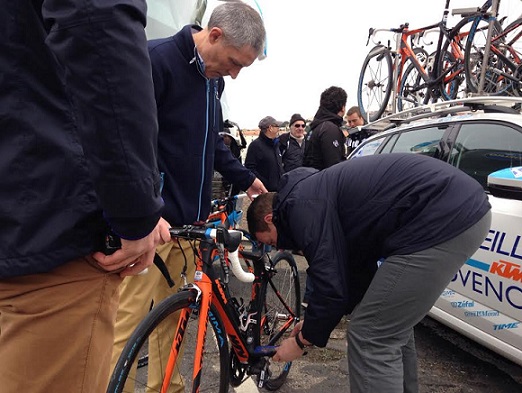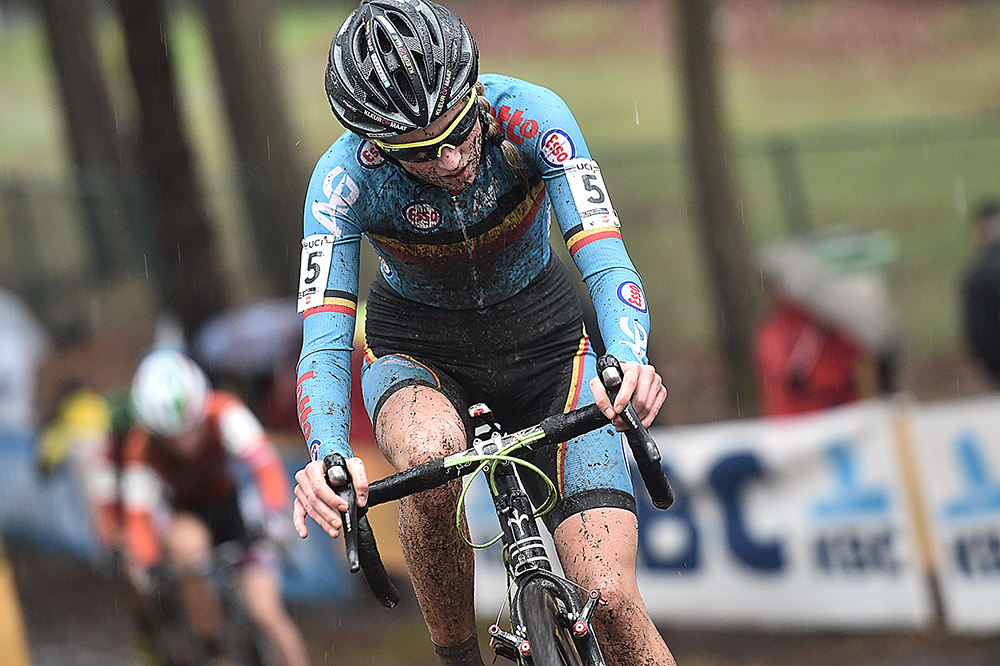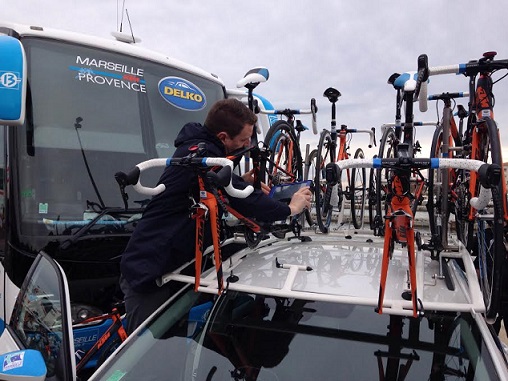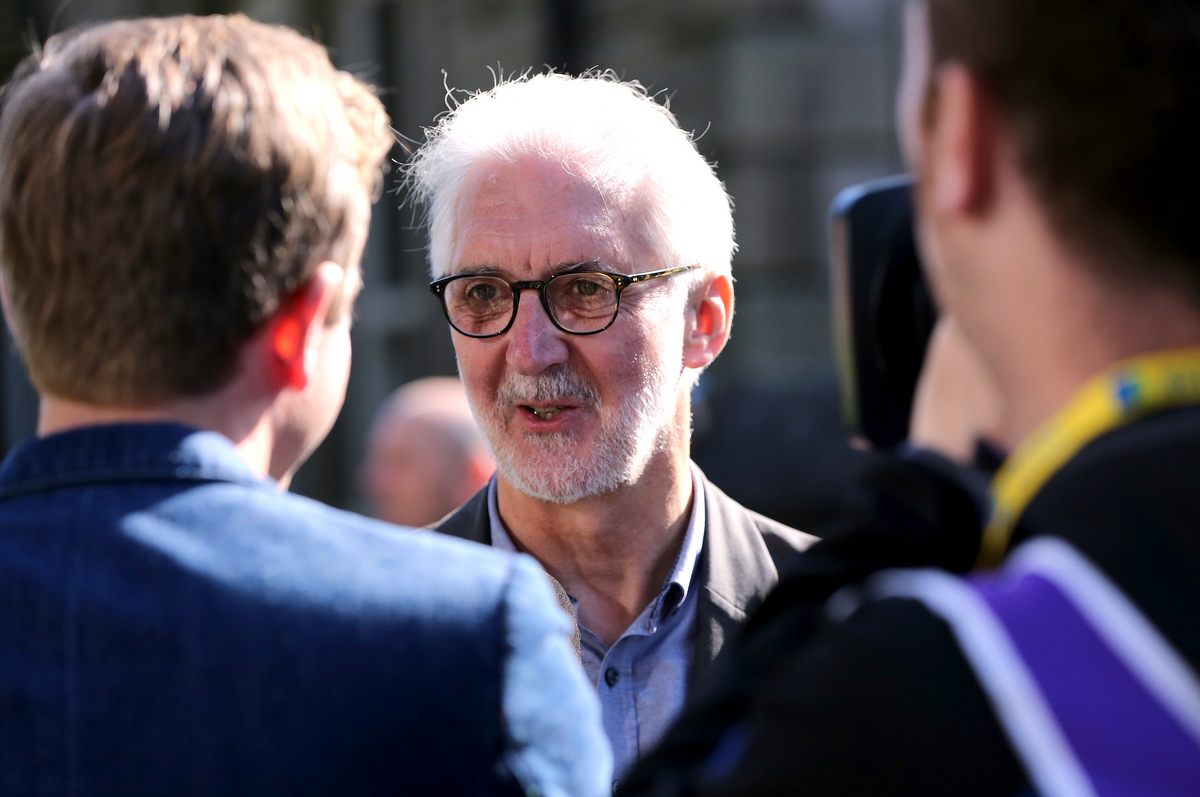UCI search for mechanical doping at the La Mediterraneenne race
Officials again use blue tablet to check bikes





The UCI carried out bike checks in search of possible mechanical doping before the second stage of the La Méditerranéenne race in the south of France on Friday.
Reporters from the Directvelo.com website spotted UCI officials carrying out the checks before the start of the stage in the holiday town of Banyuls-sur-Mer.
The UCI officials appeared to use the same blue tablet detector that was first seen at the UCI Cyclo-cross World Championships and which apparently detected a hidden motor in a bike that was prepared for Femke Van den Driessche in the women’s under 23 race. Van den Driessche now faces a disciplinary hearing and could be banned for at least six months and fined up to 20,000 Swiss francs.
Directvelo spotted UCI officials checking race bikes and spare bikes on the team cars of the French Delko Marseille-Provence KTM team. The Italian Bardiani-CSF team confirmed to Cyclingnews that their Cipollini, were also checked. It is not clear if other bikes were checked.
UCI President Brian Cookson confirmed at the cyclo-cross worlds that the bike detained had a motor concealed inside its tubing, which goes directly against the UCI regulations surrounding technological fraud under article 12.1.013.
There was no sign of bike checks for mechanical doping during last week’s Dubai Tour, the Jayco Herald Sun Tour in Australia, or at the Vuelta a la Comunitat Valenciana in Spain. However, Cookson warned that the sport's governing body is working hard to detect mechanical doping and catch any riders trying to cheat with hidden motors or even magnetic wheels.
“They’ve been looking everywhere. Please don’t delude yourself that we haven’t been taking this seriously,” Cookson told reporters during a visit to the Tour of Qatar this week, pointing out that bikes were dismantled at last year's Milan-San Remo in the search for more than just hidden motors.
Get The Leadout Newsletter
The latest race content, interviews, features, reviews and expert buying guides, direct to your inbox!
“What we’ve been trying to do is to trial and develop equipment that will be easier to use and will allow us to scan more bikes, more quickly and at more races. The World Cyclo-cross Championships was a good example of that: we did 50 or 60 bikes on the first day and we found one that was suspicious when they took it apart. As you know, they found a motor, hence the case that is continuing now.”